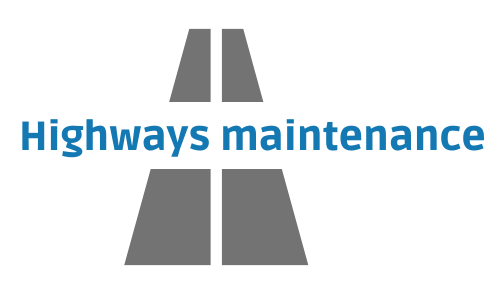In the dynamic landscape of corporate vehicle management, businesses are constantly seeking ways to enhance efficiency and reduce operational costs. One often overlooked tool that can significantly impact your company's bottom line is the strategic use of Michelin's itinerary calculation systems. These sophisticated navigation tools go far beyond simple directions, offering comprehensive solutions that can enforce compliance, optimise journeys, and ultimately save your business substantial amounts of money.
Leveraging michelin's route planning tools for business efficiency
The modern business environment demands precision in every aspect of operations, including corporate travel and fleet management. Michelin Connected Fleet offers a comprehensive suite of navigation and planning tools specifically designed to address these business needs. Unlike standard consumer GPS systems, Michelin's enterprise solutions integrate with broader fleet management systems to provide a holistic approach to journey optimisation.
Understanding the Core Features of Michelin's Navigation Systems
At the heart of Michelin's navigation excellence is a sophisticated algorithm that considers multiple variables simultaneously. These systems don't merely calculate the shortest distance between two points; they factor in real-time traffic conditions, road quality, vehicle specifications, and even driver behaviour patterns. The technology allows for precise mileage tracking that aligns perfectly with HMRC mileage rates requirements, ensuring that business mileage claims are accurate and compliant with UK tax regulations.
How proper route planning translates to bottom-line savings
The financial impact of implementing Michelin's route planning tools can be substantial across various dimensions of your business operation. Companies utilising these tools report significant reductions in fuel consumption through more efficient routing. Beyond the immediate fuel savings, businesses experience decreased vehicle maintenance costs due to optimised journeys that reduce unnecessary wear and tear. Many Fortune 500 companies have already recognised this value proposition, with over 85% now employing advanced AI-driven fleet management solutions similar to those offered by Michelin Connected Fleet.
The viamichelin advantage: beyond basic navigation
The ViaMichelin platform represents a significant evolution in business travel planning, offering capabilities that extend well beyond rudimentary mapping services. This comprehensive solution integrates seamlessly with broader fleet management systems, providing businesses with powerful tools to enforce travel policies and monitor compliance across their entire vehicle fleet.
Real-time traffic integration and cost calculations
One of the standout features of the ViaMichelin system is its ability to incorporate live traffic data into journey planning. This capability allows drivers to avoid congestion proactively, saving valuable time and fuel. The system also provides detailed cost projections for each journey, accounting for fuel consumption based on vehicle type, toll charges, and even estimated wear on tyres and other components. These comprehensive calculations allow businesses to budget accurately for travel expenses and identify opportunities for cost reduction through route optimisation.
Customising Routes for Different Vehicle Types and Business Needs
ViaMichelin recognises that different vehicles have distinct requirements and limitations. The platform allows fleet managers to customise routes based on specific vehicle characteristics, including dimensions, weight, and fuel type. This feature is particularly valuable for businesses transitioning to green fleet operations with electric vehicles, as the system can identify optimal charging points along routes and factor battery range into journey planning. Companies like Ember bus company have leveraged similar technology to successfully expand their intercity electric bus services, demonstrating the practical applications of such customised route planning for sustainable transport operations.
Cost reduction through strategic route optimisation
Strategic route planning represents one of the most effective methods for controlling operational expenses in businesses with significant transportation requirements. Michelin's advanced route optimisation tools allow companies to implement systematic approaches to journey planning that deliver measurable financial benefits while supporting broader sustainability goals.
Minimising fuel consumption and vehicle wear
Fuel typically constitutes one of the largest variable costs in fleet operations, making it a prime target for efficiency improvements. By analysing historical data and current conditions, Michelin's systems can identify the most fuel-efficient routes for specific vehicles. The technology also incorporates driver behaviour monitoring to encourage smoother driving techniques that further reduce fuel consumption and vehicle wear. Studies show that businesses implementing such systems can achieve fuel savings of up to 15% through a combination of optimised routing and improved driving habits. These savings become even more significant when applied across large fleets operating daily.
Tracking and Analysing Journey Data for Continuous Improvement
The value of Michelin's route planning tools extends beyond immediate journey optimisation to include comprehensive data collection for long-term analysis. The systems automatically log detailed information about each journey, creating a valuable dataset that businesses can mine for insights. Fleet managers can identify patterns, spot inefficiencies, and implement targeted improvements based on actual operational data. This continuous improvement approach allows businesses to achieve incremental gains over time, with many reporting cumulative cost reductions exceeding 20% after full implementation of data-driven route optimisation strategies.
Navigating major urban centres with michelin technology
 Urban driving presents unique challenges that can significantly impact business efficiency and costs. Dense traffic, complex road systems, and restricted access zones make navigating major cities particularly challenging for business drivers. Michelin's navigation technology offers specialised features designed specifically to address these urban driving complexities.
Urban driving presents unique challenges that can significantly impact business efficiency and costs. Dense traffic, complex road systems, and restricted access zones make navigating major cities particularly challenging for business drivers. Michelin's navigation technology offers specialised features designed specifically to address these urban driving complexities.
Specialised Guidance for Complex City Driving in Paris and Lyon
Metropolitan areas like Paris and Lyon feature intricate road networks that can confound even experienced drivers, particularly those unfamiliar with the specific city. Michelin's navigation systems provide detailed guidance through these complex urban environments, accounting for one-way systems, traffic restrictions, and pedestrian zones. The technology also helps drivers navigate around temporary road closures and construction sites, which are frequent occurrences in major cities. By providing clear, accurate directions through challenging urban environments, these systems help business drivers avoid costly delays and penalties associated with inadvertent violations of traffic regulations.
Accessing premium michelin services for business travel throughout france
For businesses operating extensively across France, Michelin offers enhanced navigation services that leverage the company's unique understanding of French road networks and travel conditions. These premium services include access to exclusive Michelin data on road quality, scenic routes that may benefit certain business operations, and integration with the famous Michelin Guide for client entertainment planning. The systems also provide specialised routing options for different regions of France, accounting for local driving customs and road characteristics. Companies utilising these premium services report improved driver satisfaction and client impressions, contributing to both operational efficiency and business development outcomes across their French operations.
Monitoring fleet compliance with michelin connected fleet
Managing a company car fleet requires precision, especially when it comes to compliance with HMRC regulations and controlling costs. Michelin Connected Fleet offers comprehensive solutions that can transform how businesses monitor their vehicle usage, ensure regulatory compliance, and optimise expense claims.
With rising operational costs and increasing scrutiny on business mileage claims, fleet managers need reliable tools to track journeys accurately. Michelin Connected Fleet's management solutions provide the technology needed to reduce fleet costs across fuel, insurance, and repairs while simultaneously improving productivity and safety.
Implementing driver behaviour monitoring for hmrc compliance
One of the most valuable features of Michelin Connected Fleet is driver behaviour monitoring, which plays a crucial role in HMRC compliance. For businesses claiming tax relief through the Mileage Allowance Payments (MAPs) scheme, accurate documentation is essential. HMRC rates currently stand at 45p per mile for the first 10,000 business miles in cars and vans, dropping to 25p thereafter.
Michelin's monitoring systems track driving patterns and can identify behaviours that impact fuel efficiency. The in-cab coaching devices provide immediate feedback to drivers, promoting more economical driving styles. This data collection serves dual purposes – maintaining compliance with HMRC requirements for mileage claims while reducing fuel consumption. By implementing these monitoring tools, businesses can maintain the detailed records of trips, mileage, and purposes that HMRC requires, whilst simultaneously working toward a greener fleet transition in line with the UK government's plans to phase out non-zero emission HGVs by 2035.
Integrating business mileage claims with michelin's calculation tools
Michelin Connected Fleet offers sophisticated calculation tools that streamline the process of managing business mileage claims. These tools integrate directly with fuel management systems that monitor and optimise usage in real-time, creating a comprehensive approach to fleet expense management.
For companies transitioning to electric vehicles, like Ember bus company which launched the first intercity electric bus service from Dundee to Edinburgh, Michelin's EV management solutions are particularly valuable. The system helps businesses track the specific costs associated with electric fleet operations, which differ significantly from traditional fuel vehicles. With 66% of CEOs reporting measurable business improvements thanks to technologies like these, the economic case is compelling. Fleet managers can use Michelin's calculation tools to accurately predict costs, compare routes, and make data-driven decisions about vehicle deployment. This precision not only supports legitimate tax claims but also contributes to broader cost reduction strategies that can transform a fleet's financial performance.

